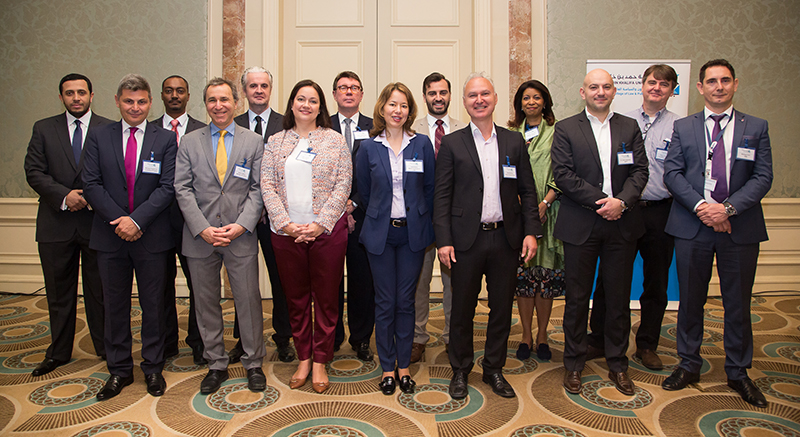
Hamad Bin Khalifa University’s (HBKU) College of Law and Public Policy (CLPP) hosted a workshop on “Comparative and International Investment Law: Prospects for Reform.” The workshop dealt with the significant backlash against international investment law and arbitration by governments in different parts of the world.
Some countries have already terminated a number of their Bilateral Investment Treaties (BITs) and others plan to replace BITs with a domestic law applicable to both national and foreign investors; other states are in the process of developing new types of international investment treaties.
According to the workshop organizer and CLPP Assistant Professor, Georgios Dimitropoulos, the goal of the workshop was to bring comparative law methodology into the study of international investment law. “Participants at the workshop,” Dimitropoulos, said, “compared domestic systems to draw general conclusions on the international investment regime, but also to address how international investment law and arbitration has been and should be influencing domestic investment laws.”
The workshop included two panels – both chaired by HBKU CLPP Founding Dean, Clinton W. Francis – the first was on “Conceptualizing the Mutual Interplay between International and Domestic Investment Laws,” and the second on “Domestic Investment Law and Policies, and the Reform of International Investment Law.”
Participating on the first panel was Bruno Simma, Collegiate Professor of Law at the University of Michigan Law School; and Steven R. Ratner, who addressed the causal connections between international investment law and domestic regimes on foreign investment. Olimpiad S. Ioffe Professor of International and Comparative Law at the University of Connecticut School of Law, Peter L. Lindseth, discussed the growing sense of backlash against BITs from the perspective of comparative administrative law and history. Professor of International Law and Human Rights at Brunel Law School, Ilias Bantekas, addressed human rights obligations of investors; and CLPP Assistant Professor of Law, Georgios Dimitropoulos, discussed international investment law and national sovereignty.
On the second panel, Professor of Law at the University of Melbourne Law School, Tania Voon, addressed the relationship between the international investment regime and Australian investment law. A partner at the New York law firm, Foley Hoag, Mélida Hodgson, discussed the experience of the Americas with international investment law where a significant number of investment arbitration cases have occurred; and addressing an agreement between the EU and Vietnam was Julien Chaisse, professor of law at the Chinese University of Hong Kong.
Focusing on recent changes in the investment laws in Qatar was Salman Mahmoud, a partner with Sultan Al-Abdulla & Partners, who discussed investment laws in the Gulf and the influence of international investment law. Nikolaos Farantouris, Jean Monnet Professor of EU Energy Law & Policy at the University of Piraeus, General Counsel for the Public Gas Corporation of Greece, and Chair of the Legal Affairs Committee for EUROGAS, focused on energy investments in Europe.
Both panels were followed by discussions between the international experts and local participants from Qatar Investment Authority, Qatar Rail, Qatar National Bank, Manateq, Qatar Science and Technology Park, and Ashghal.
During the workshop, Dean Francis highlighted new research initiatives at CLPP, which will benefit both the college and Qatar. “One important outcome of this workshop is the launch of our International Law and Policy Research Program (ILPRP) – an initiative that seeks to bridge the gap between academia and industry through research opportunities conducted in collaboration with CLPP’s stakeholders. The ILPRP will play a strategic role in enabling information exchange between international academics and legal practitioners in investment law in Qatar and abroad,” he said.





